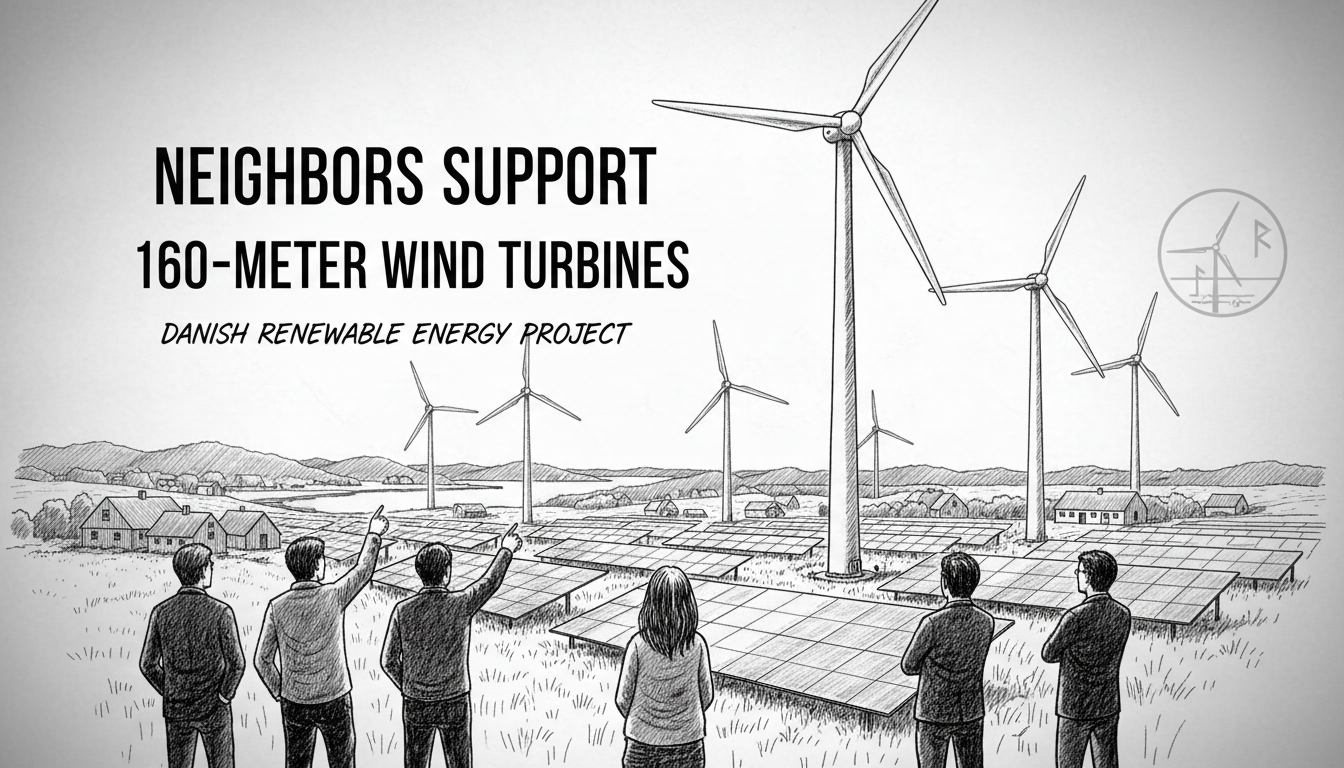Residents near Stenstrup on the island of Funen express surprising support for a major renewable energy development. The project includes two 160-meter wind turbines and 125 hectares of solar panels. It also features 70 hectares of recreational space with walking paths and lakes.
Nicolaj Egelund lives close to the proposed site. He feels local concerns have been heard throughout the planning process. Many neighbors actually welcome the development. They see potential benefits for their community.
Egelund notes the current landscape consists mainly of agricultural fields. He believes the project will create more natural diversity than exists today. The planned green spaces and water features would enhance the area's recreational value.
Other nearby residents share this positive outlook. Inge and Bent Nielsen will have solar panels installed directly across from their home. They appreciate being consulted about landscaping choices. Multiple meetings and site visits have made them feel included in the planning.
Project developer Hans William Falck emphasizes community involvement as a core principle. He states that working closely with neighbors remains crucial throughout development. The team actively incorporates local suggestions into their plans.
However, not all community members share this enthusiasm. Jonas Hansen worries about noise pollution and visual impact. He fears the project could affect his family's quality of life and property values. By late September, 450 local residents had signed formal objections.
Falck acknowledges these concerns are understandable. He recognizes that major changes can be difficult to accept. People naturally want to preserve what they know and love about their community.
The political process continues moving forward. The planning committee approved the project with support from Social Democrats and Socialist People's Party. The economics committee in Svendborg Municipality later gave additional approval.
Conservative council member Henrik Nielsen sees the project as necessary for green transition goals. He understands local frustrations but emphasizes shared responsibility for climate action.
Socialist People's Party representative Arne Ebsen calls the development an important climate step. He acknowledges public uncertainty while stressing political duty to meet environmental targets.
Danish People's Party member Dorthe Ullemose strongly opposes the project. She cites substantial public opposition and vows to vote against approval. The debate reflects broader tensions in Denmark's renewable energy expansion.
This situation illustrates Denmark's challenging transition toward carbon neutrality. As one of Europe's renewable energy leaders, Denmark faces difficult balancing acts between climate goals and local concerns. The Stenstrup case shows how community engagement can build acceptance for necessary infrastructure projects.
Similar debates occur across Scandinavia as nations work toward ambitious climate targets. Norway, Sweden and Finland all encounter local resistance to renewable energy installations. The Danish approach of extensive community consultation offers lessons for other Nordic countries.
The final decision now rests with the municipal council. Their verdict will signal how Denmark reconciles national climate commitments with local community interests.

